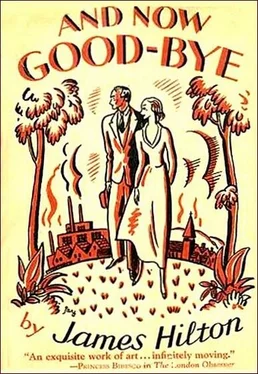As it chanced, Aunt Viney did interrupt; a message, she said, had come from Miss Monks—would Howat call round and see her some time that evening, if he could, as it was important?
He sighed and answered yes, certainly. It was all over the town, of course, that the old woman was dying, and that Ringwood had given her the news, however, had been dwarfed in significance by that more exciting business about Garland’s daughter. He put on his hat and overcoat and went into the chilly, lamp-lit streets. Well, he reflected, he would have a chance to do better with the poor old soul than the day before—perhaps it was more than he deserved. But he was very tired again, and there was the Temperance meeting he ought to look in at later on—they liked him to lead the singing.
He reached the house in Lower George Street about half-past seven, and was shown up into that same stuffy, stale-smelling bedroom. But instead of a dying woman’s greeting he was welcomed by a brisk “Good evening, Mr. Freemantle “, and saw Miss Monks sitting up cheerfully in bed with her eyes fixed on him in a way that put him rather in mind of a snake poised to strike. He began:
“Well, Miss Monks, and how are you to-day?” in the usual manner, but he was hardly prepared for the tremendous precision with which she replied: “Better.”
“Better? That’s great—great!” he murmured, and added irrelevantly that it was a gloriously clear evening, cold, but no fog—so different from yesterday.
“And so I suppose,” said Miss Monks, ignoring the weather, “that Garland’s girl has run away from home?”
“I believe so, yes.”
“I’m not surprised. There was always something queer about that girl. I put it all down to not being made to go to chapel—Garland seemed to have no control over her at all. And then having that job at the library, too.” She paused and continued impressively: “There are books in that library, Mr. Freemantle, whether you believe me or not, which ought not to exist anywhere—let alone where young people can get hold of them. I don’t hold with public libraries.”
Howat made no answer to that, but smiled gently and waited for her to get to the real reason why she had sent for him. It was soon forthcoming. It appeared that she had been on the point of death about three o’clock that morning and had then made a sudden recovery. She was convinced it was a miracle—the special intervention of a Providence evidently desirous of preserving her for some future activity. “I’m grateful, too, for such mercies,” she added, “and I’d like you, Mr. Freemantle, to join with me in a little prayer of thankfulness.”
So he prayed again, and when that was over she went on to say that, as a more practical expression of gratitude, she had been thinking of making an alteration in her will. She had only a few hundred pounds to dispose of, and as the will stood, it was all left to Mrs. Kerfoot, her widowed niece who lived next door and had looked after her for many years. In view, however, of the recent dramatic intervention of Providence, she had come to feel that this would be a selfish arrangement; a hundred pounds would surely be enough for Mrs. Kerfoot, and the rest could then be devoted to loftier things. She had been thinking out details, in fact, ever since early morning, and had already sent a message to her lawyer. What she had in mind was some sort of charity, associated with the chapel and administered by the parson. She knew there were several existing charities of the kind in Browdley—one provided for loaves and candles to be given every Christmas to fifty deserving Church of England spinsters—she had often seen mentions of it in the local paper, and she had noticed that it was always called after the name of the original benefactor. Something like that she had in mind; it seemed to her a really charitable way of disposing of money, much better than leaving it all in bulk to a private person, however deserving.
Howat listened rather unhappily as she expounded this evidently well- prepared scheme. He mentioned with diffidence that most charities of such a kind dated from hundreds of years back, when social conditions were different, and survived nowadays merely as antiquities. He also indicated that it was already becoming a matter of some intricacy to discover the fifty deserving spinsters who would accept the Christmas loaves and candles, and that the vicar of the parish church had often commented that there ought to be some way of altering things to fit in with more modern needs. In his (Howat’s) opinion, if she would forgive him for expressing it, he didn’t think such a bequest would really be the best way of using the money; there were many other things in these days—the infirmary, for instance, which badly required new X-ray equipment, or the cottage hospital—
But that, if he had remembered, was tactless of him, for Miss Monks had a violent grudge against all such institutions, and answered tartly: “Not with my money, thank you, Mr. Freemantle—I don’t hold with them at all. Those who give to such things can do what they like with their own, but I have a right to do what I like with mine.”
“Oh quite, quite,” agreed Howat.
In the end he did, after much persuasion, manage to convince her that a Letitia Monks Bequest on the lines of the loaves and candles would be a rather pointless affair. But he could not convert her to any alternative idea of his own; two things, he realised, were fixed in her mind—first, that the bequest should be connected with the chapel, and second, that it should be permanently associated with her own name. Finally, as the only terms on which she could be diverted from something absolutely fatuous, he agreed that the chapel was in some need of a new vestry. Yes, of course, it could be the Letitia Monks Vestry, and the name could be inscribed in stone somewhere—oh yes, he was sure it could. And he would certainly consult with her lawyer about it, if she wished—yes, he would do anything she asked. A splendid idea—extremely generous of her—future generations would undoubtedly appreciate it—oh yes, yes—undoubtedly…
“You see,” said Miss Monks, with shrewd triumph, “I feel it’s the chapel that has made me what I am.”
He stayed a little longer till a distant chiming reminded him that it was nine o’clock; he had been there for an hour and a half; it really was time he looked in at that Temperance meeting. He was just shaking hands and preparing to leave when Ringwood’s brusque voice came booming up the stairs.
Ringwood, red-cheeked and cheerful as ever, came striding into the room in his heavy motoring coat. “Hullo, Miss Monks! Thought I’d just look in to see you again on my way home! Still feeling better? That’s right—take things easily. Hullo, Freemantle—you here, too? Wonderful old lady, isn’t she? No, don’t run away—we’ll go down together in a minute just give me time to hold her hand!”
He had an air with him, Ringwood had; and Howat had often half-envied it. He was bluff and sometimes rude in his jovial way, but nobody ever minded—not that he cared if they did. He was by far the most popular doctor in Browdley; he was generous, kind-hearted, and hard-working, but he stood no nonsense and never let anyone waste his time. And the brusquer he was, the more, in a way, he was liked. In a few years, when his hair had turned completely white, he and his sayings would doubtless begin to grow legendary.
Miss Monks, at eighty-nine, was no more impervious to that forceful charm than many a girl in her teens. She simpered almost coyly as Ringwood felt her pulse and passed a hand across her forehead. “Keep quiet,” he adjured her. “You’ve been talking too much. Freemantle’s fault, I daresay. Good night, now. Sleep well. And I’ll be round in the morning.”
Читать дальше











